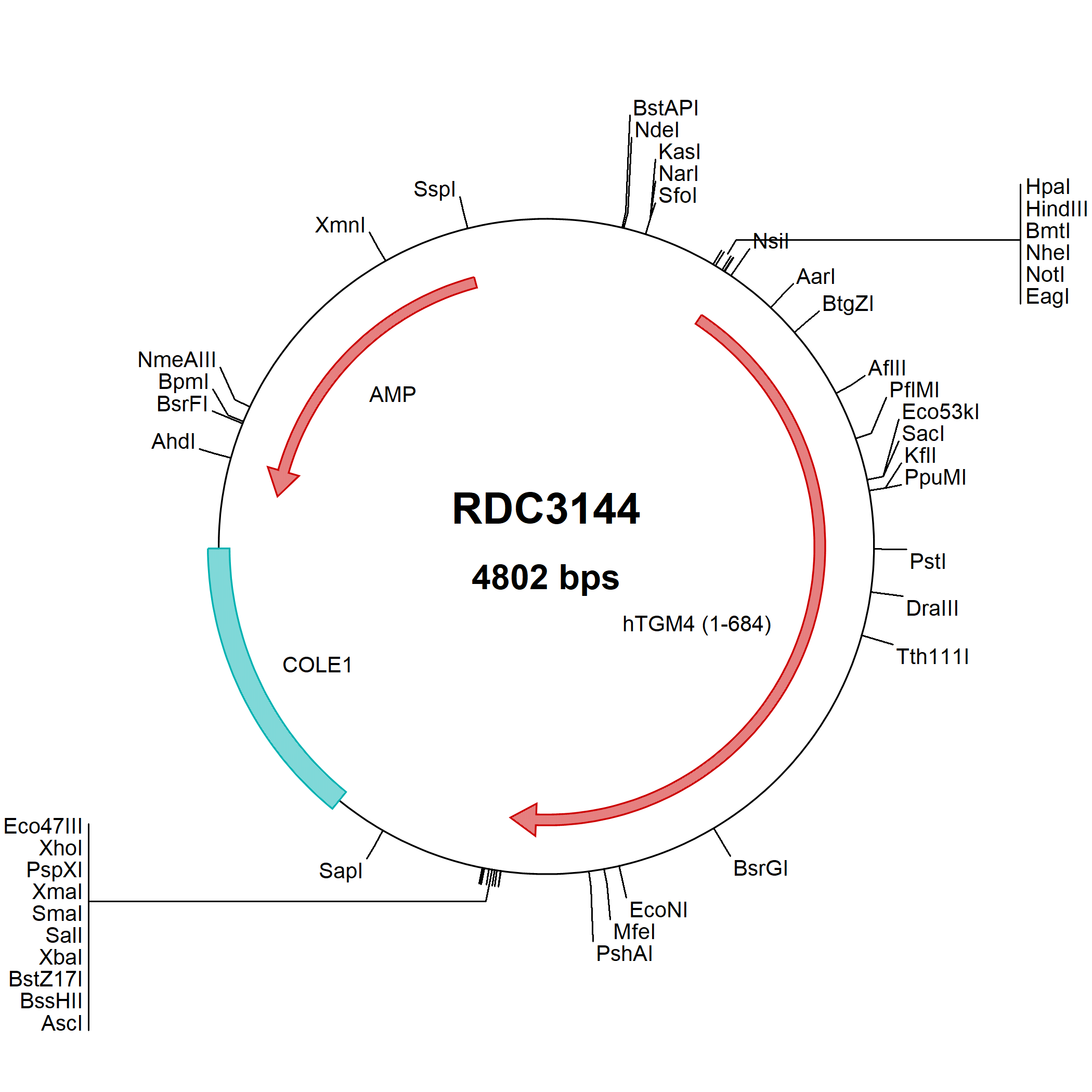Transglutaminase 4/TGM4: cDNA Clones
TGM4 is known as the prostate-specific transglutaminase because it is expressed and secreted exclusively by the prostate gland.6 In rodents, TGM4 is required for the formation of the copulatory plug and sperm antigenicity, but its function in humans is not understood. The expression of TGM4 is primarily regulated by retinoic acid and to a lesser degree by androgens.
1 result for "Transglutaminase 4/TGM4 cDNA Clones" in Products
1 result for "Transglutaminase 4/TGM4 cDNA Clones" in Products
Transglutaminase 4/TGM4: cDNA Clones
TGM4 is known as the prostate-specific transglutaminase because it is expressed and secreted exclusively by the prostate gland.6 In rodents, TGM4 is required for the formation of the copulatory plug and sperm antigenicity, but its function in humans is not understood. The expression of TGM4 is primarily regulated by retinoic acid and to a lesser degree by androgens.

